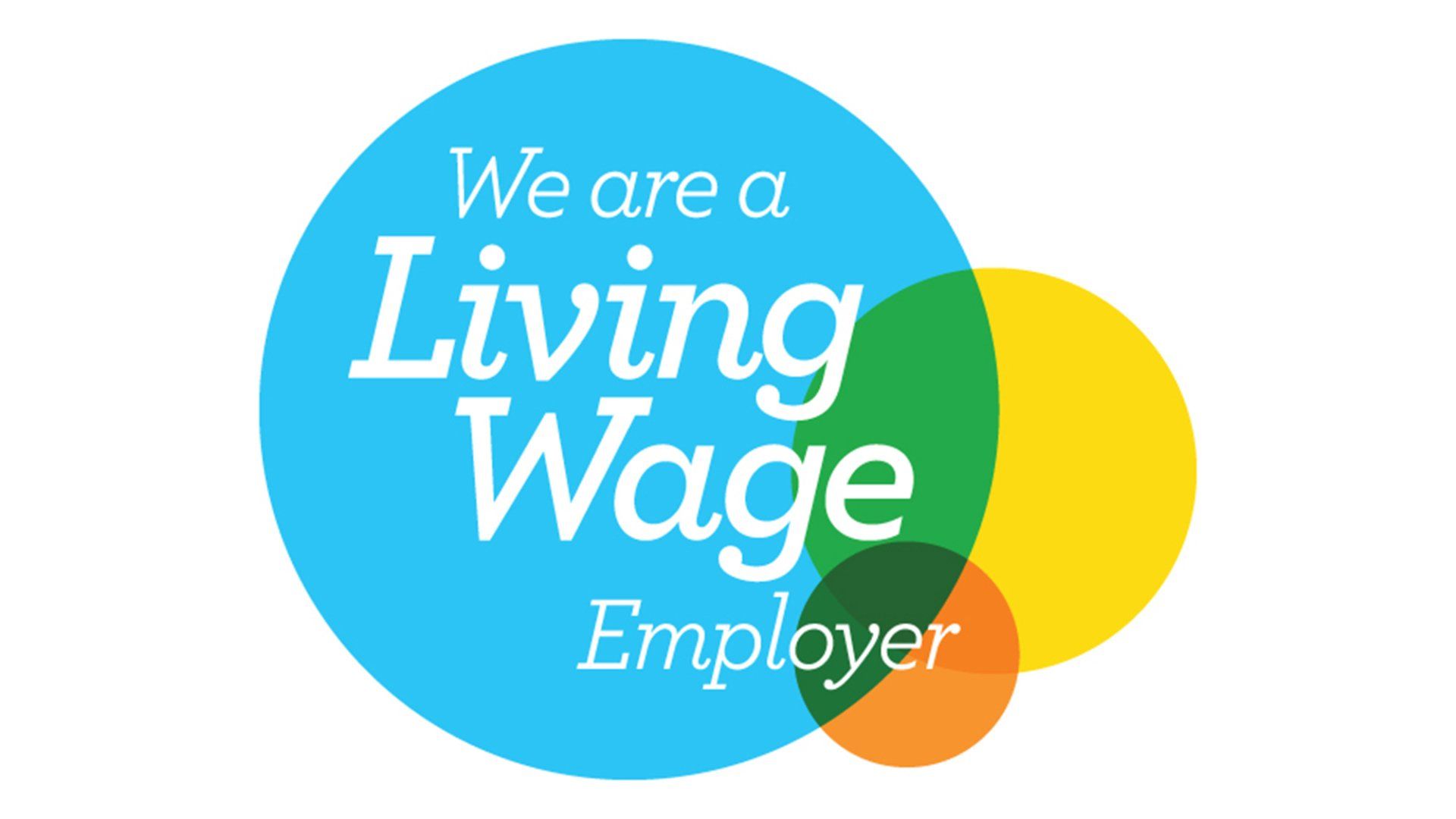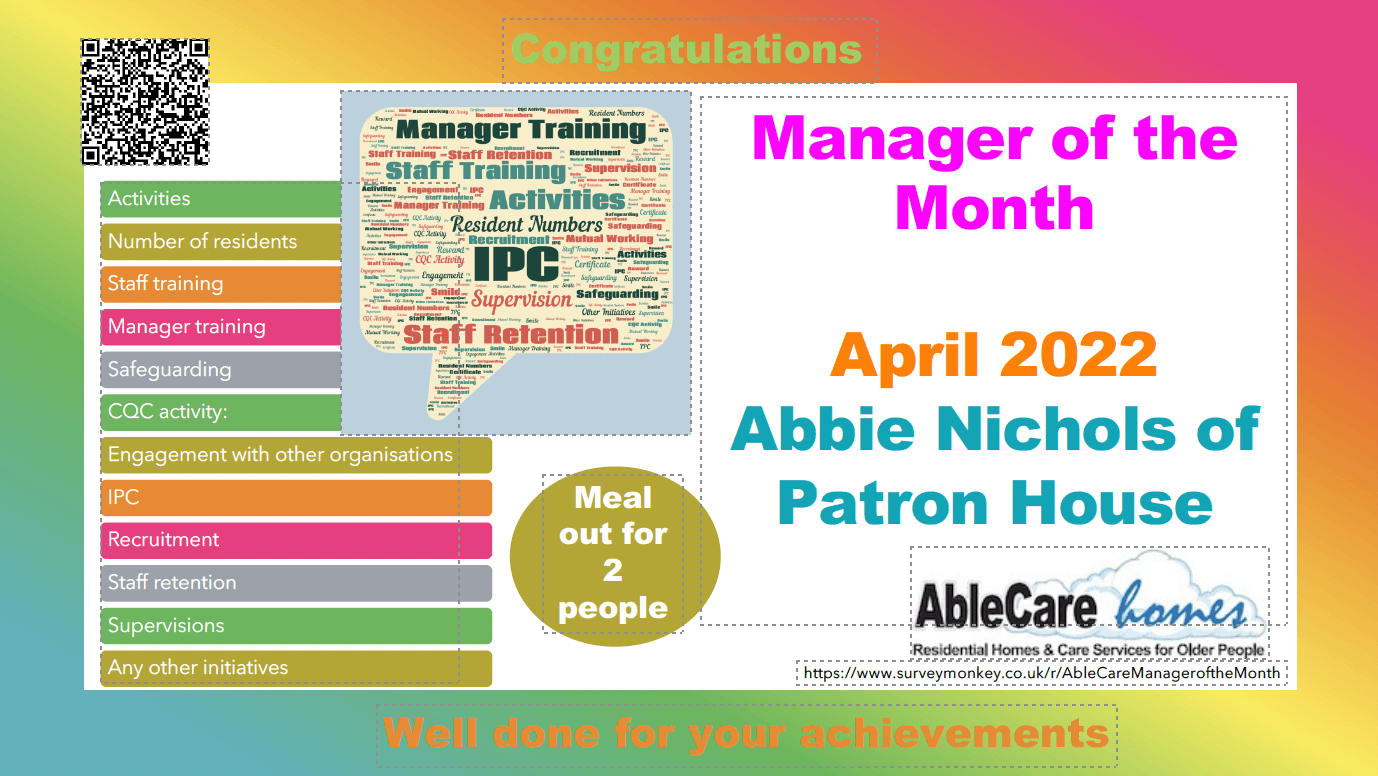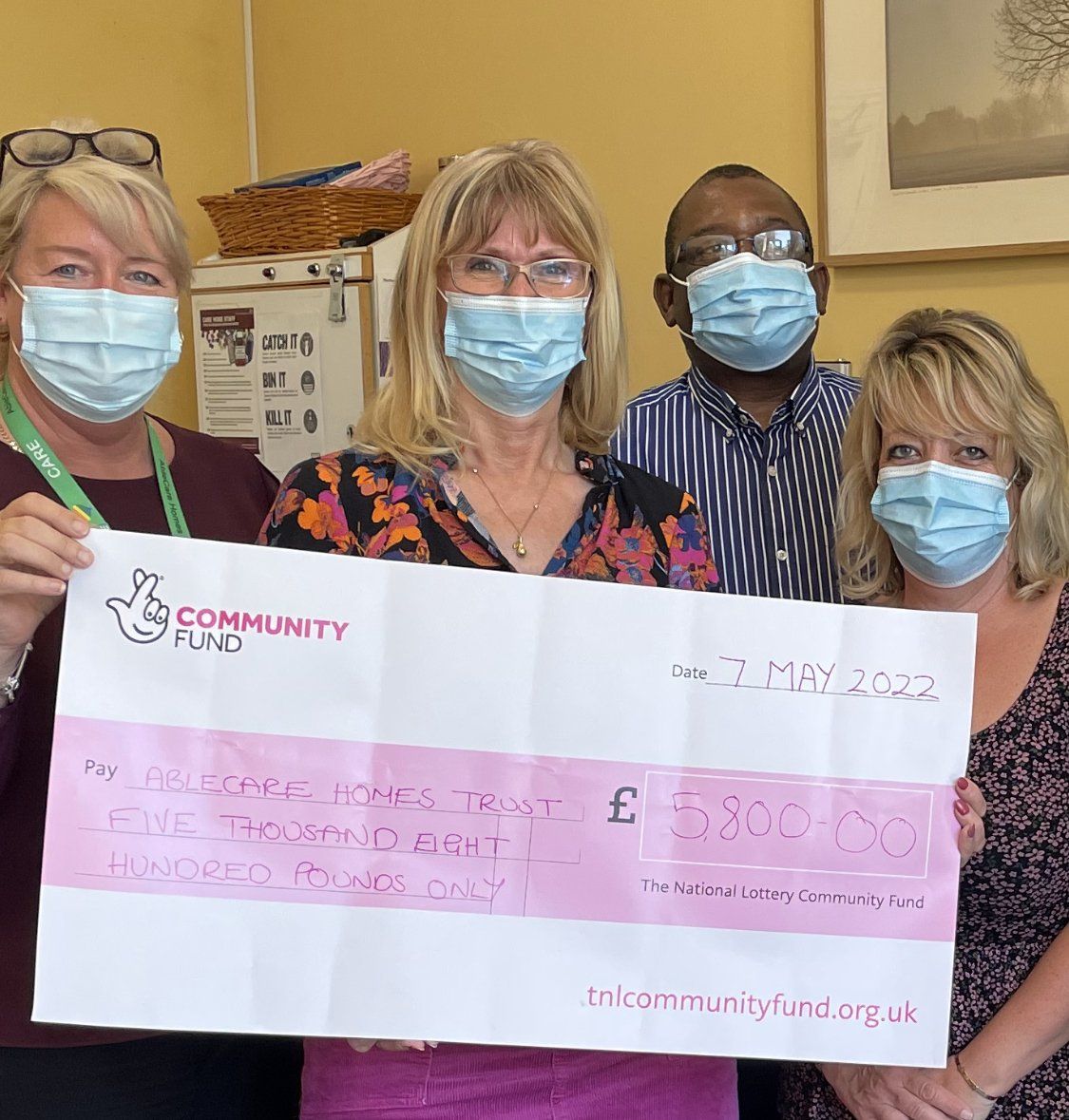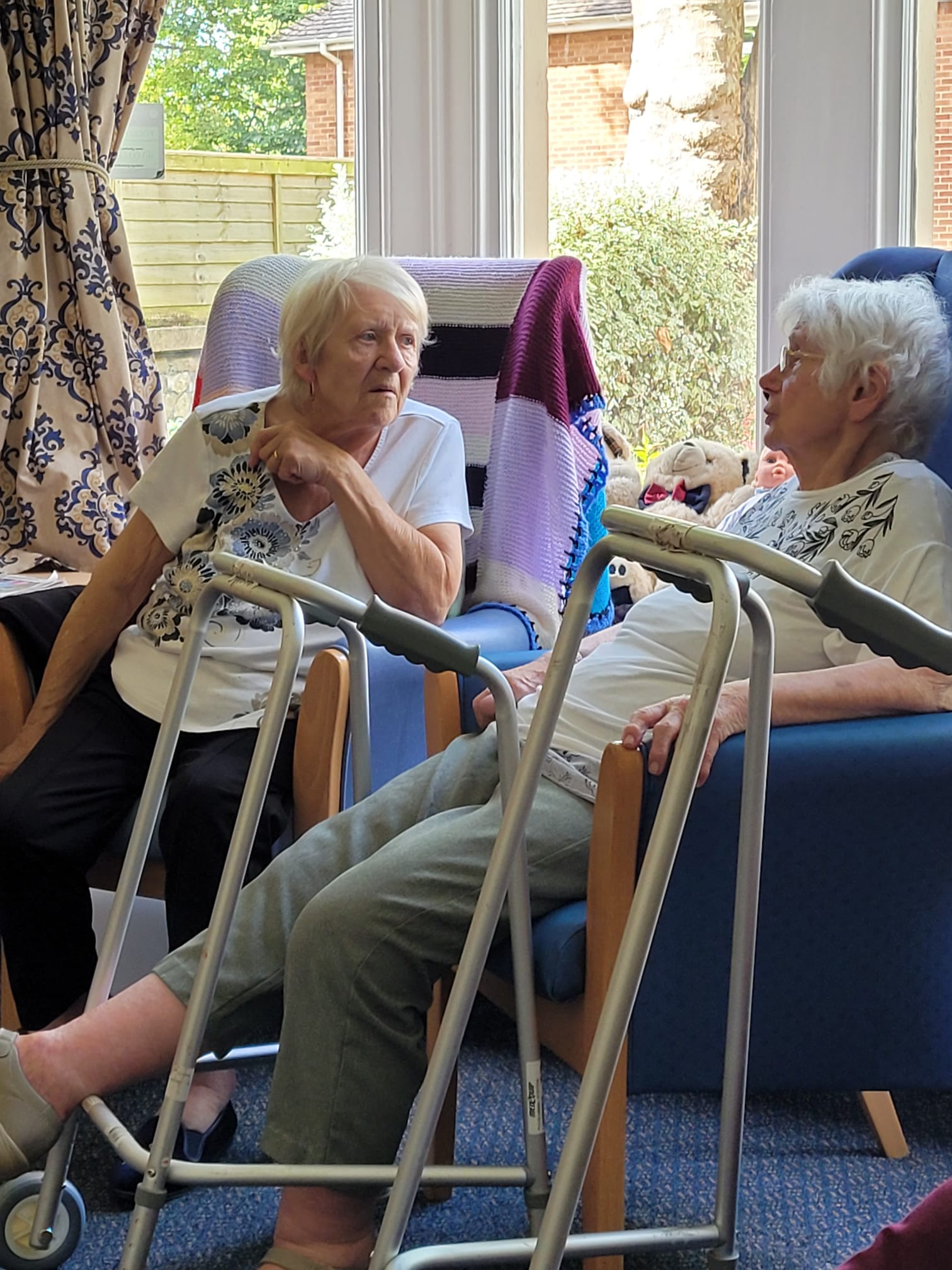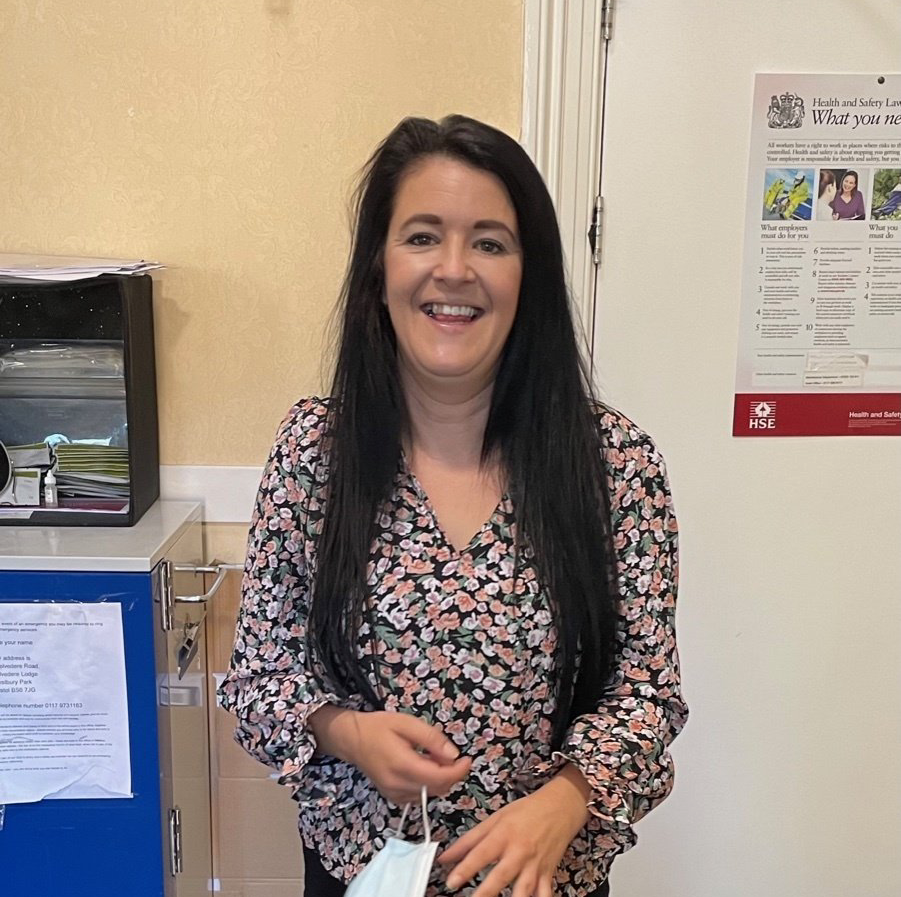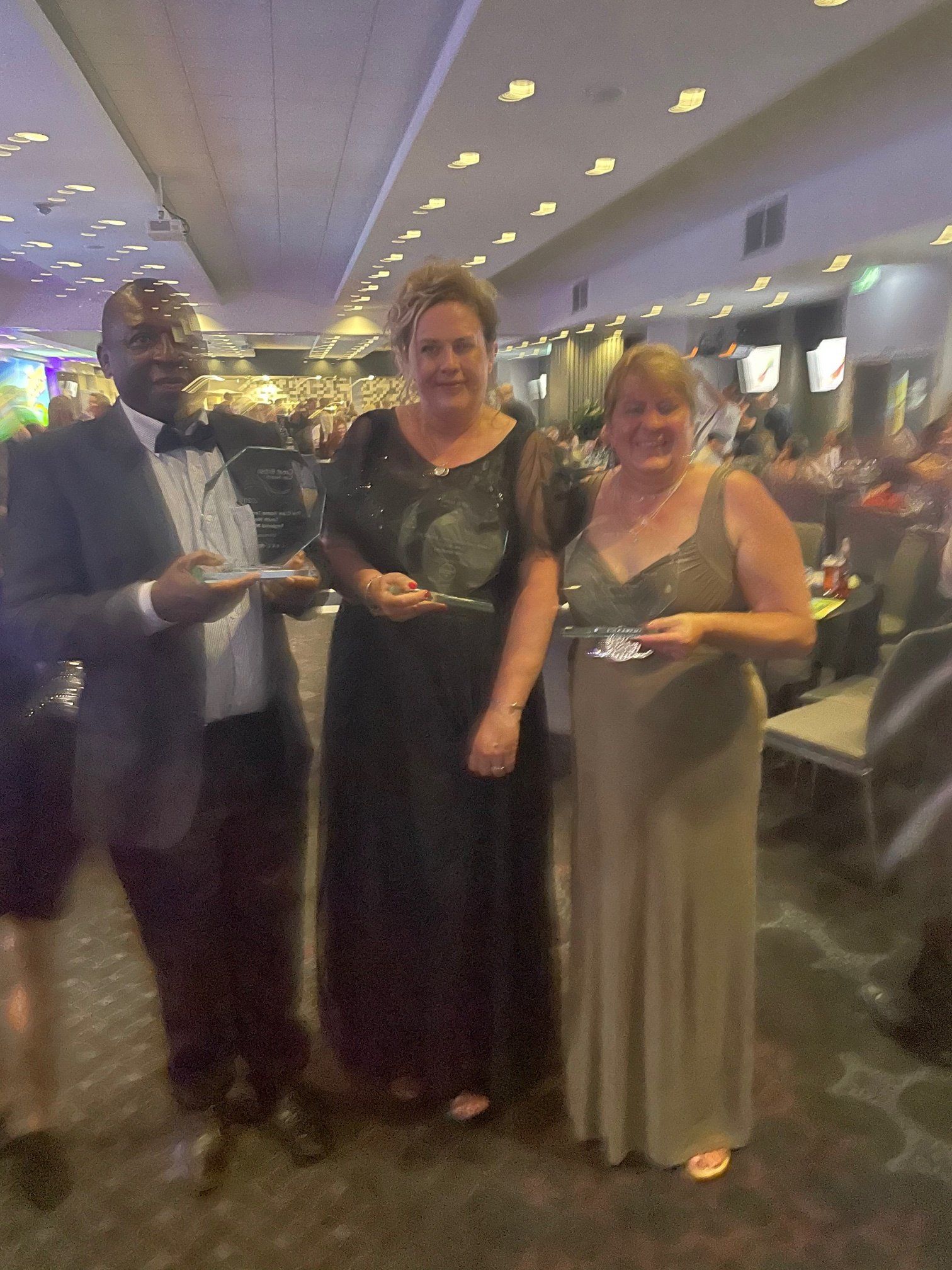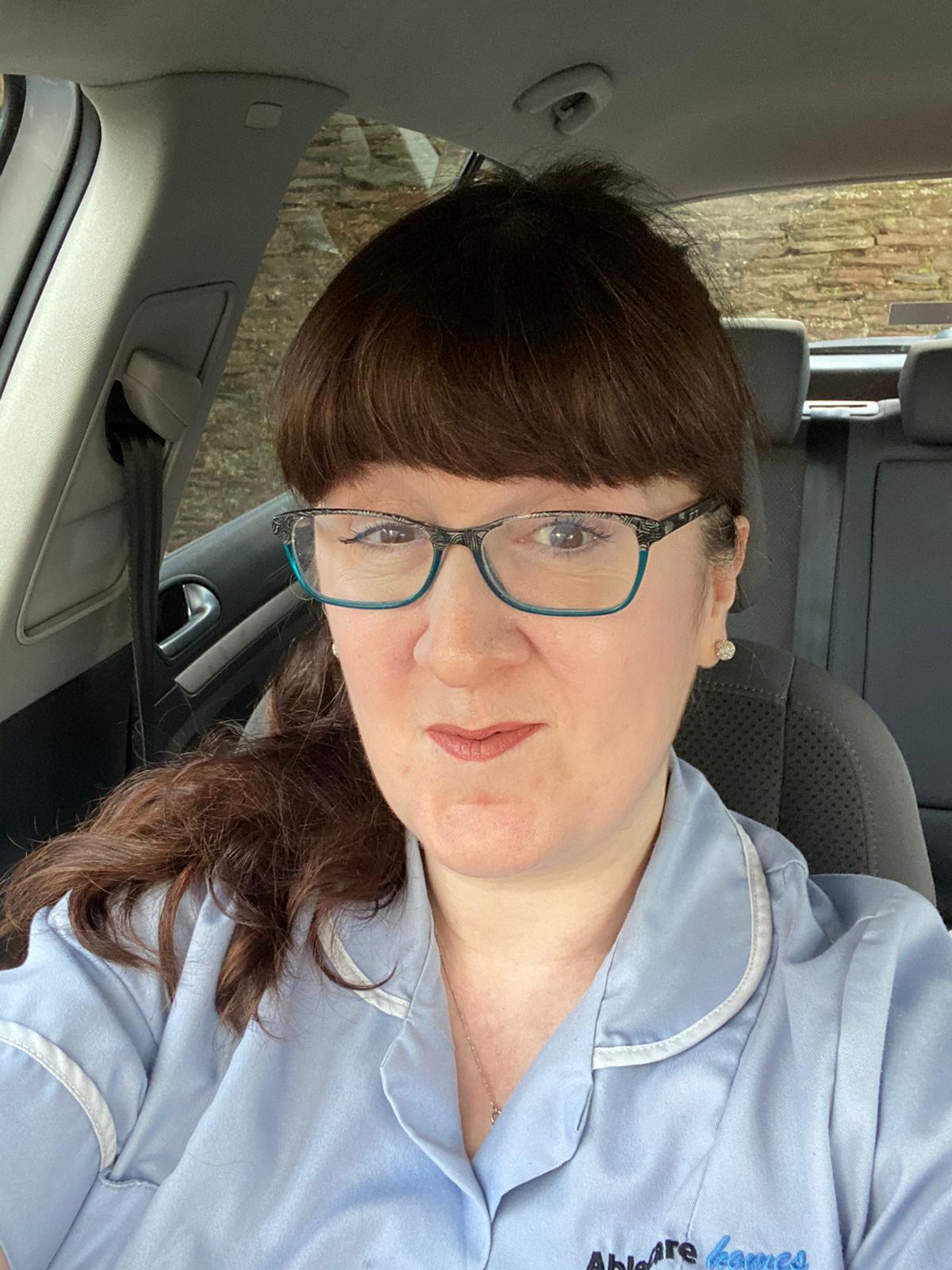Positive Care Home Visiting
S HAWKER • June 10, 2021
Tips for planning a successful visit to your relative or friend
We are really pleased to welcome resident’s loved ones back into our homes. Under the latest guidance residents can have up to five named visitors. We are all set up with the correct testing and PPE to support your visit and will be happy to explain everything to you when you book in.
You are probably feeling excited that you can visit again, but this may be mixed with emotions of anxiety about how your loved one may have changed over the last year or so and what you will talk to them about.
We have set out some helpful tips and ‘do’s & don’ts’ to help you make your visit a success for both parties. It does take a degree of skill for both sides to have a positive experience when visiting someone with Alzheimer’s or dementia. Please read through our tips and have a great visit!
Tips for planning visits strategically
1. Please check our website and read through our Visitors Policy which sets out what we can and cannot do together under the Governments latest Covid-19 guidance.
2. Limit visitors to 1 or 2 people at a time. Too many people can be overwhelming. There is a maximum of 2 visitors allowed in one day under the guidance, this can be either together or separately.
3. Schedule visits for the time of day when your older adult is usually at their best. Visits need to be booked in advance at the moment, our team can help you book in at a time when the visit is likely to be best for your relative. It may be better to avoid visits that are too early or too late.
4. Minimise distractions by meeting in a calm and quiet environment. Turn off the TV or loud music and or go to another room. Our staff will be able to guide you where you can visit safely.
Our 21 essential do’s and don’ts for visiting someone with Alzheimer’s or dementia
DO
1. Keep your tone and body language friendly and positive. Try not to project of show any anxieties you may have.
2. Don’t speak too loudly.
3. Make eye contact and stay at their eye level.
4. Introduce yourself even if you’re sure they must know you. “Hi Grandma, I’m Joe, your grandson.”
5. Speak slowly and in short sentences with only one idea per sentence. For example: “Hi Mary. I’m Jane, your friend.” or “What a beautiful day. The sunshine is nice, isn’t it?” or “Tell me about your daughter.”
6. Give them extra time to speak or answer questions, don’t rush the conversation.
7. Use open-ended questions because there are no right or wrong answers.
8. Be ok with sitting together in silence. They may enjoy that just as much as talking.
9. Follow their lead, don’t force conversation topics or activities.
10. Validate their feelings. Allow them to express sadness, fear, or anger.
11. Go with the flow of the conversation even if they talk about things that aren’t true or don’t make sense.
12. Share and discuss memories of the past. They’re more likely to remember things from long ago.
13. Come prepared with an activity, like something to read out loud, a photo album or magazine to look at, or some of their favourite music to listen to.
14. Hold hands or give gentle touches if the person gives permission and enjoys it. The Government advice is that you should not hug or have close physical contact at the moment, but you can still reassure with hand holding and gentle touch.
DON’T
1. Say “do you remember?” This can cause anger or embarrassment.
2. Argue. If they say something that’s not correct, just let it go.
3. Point out mistakes. It just makes them feel badly and doesn’t help the conversation.
4. Assume they don’t remember anything. Many people have moments of clarity.
5. Take unkind things they may say personally. The disease may twist their words or make them react badly out of confusion, frustration, fear, or anger.
6. Talk down to them. They aren’t children and you should show the proper respect.
7. Talk about them with other people as if they’re not there. If you would like to have a discussion with our staff please let us know and we can arrange this separately from your visit.
We hope our tips will help you have a really positive visit while still ensuring we all follow the latest Covid-19 safe visiting advice. We would be very happy to talk to anyone who would like a few more ideas or suggestions. Maybe you could book in for lunch and have it with your loved one, it’s a really great way to have a positive interaction and a focus to your visit. Please do follow the guidance of our staff when you do visit and stay within the areas set up for your visit, maintaining social distancing with other residents and our team.
We look forward to welcoming you back!
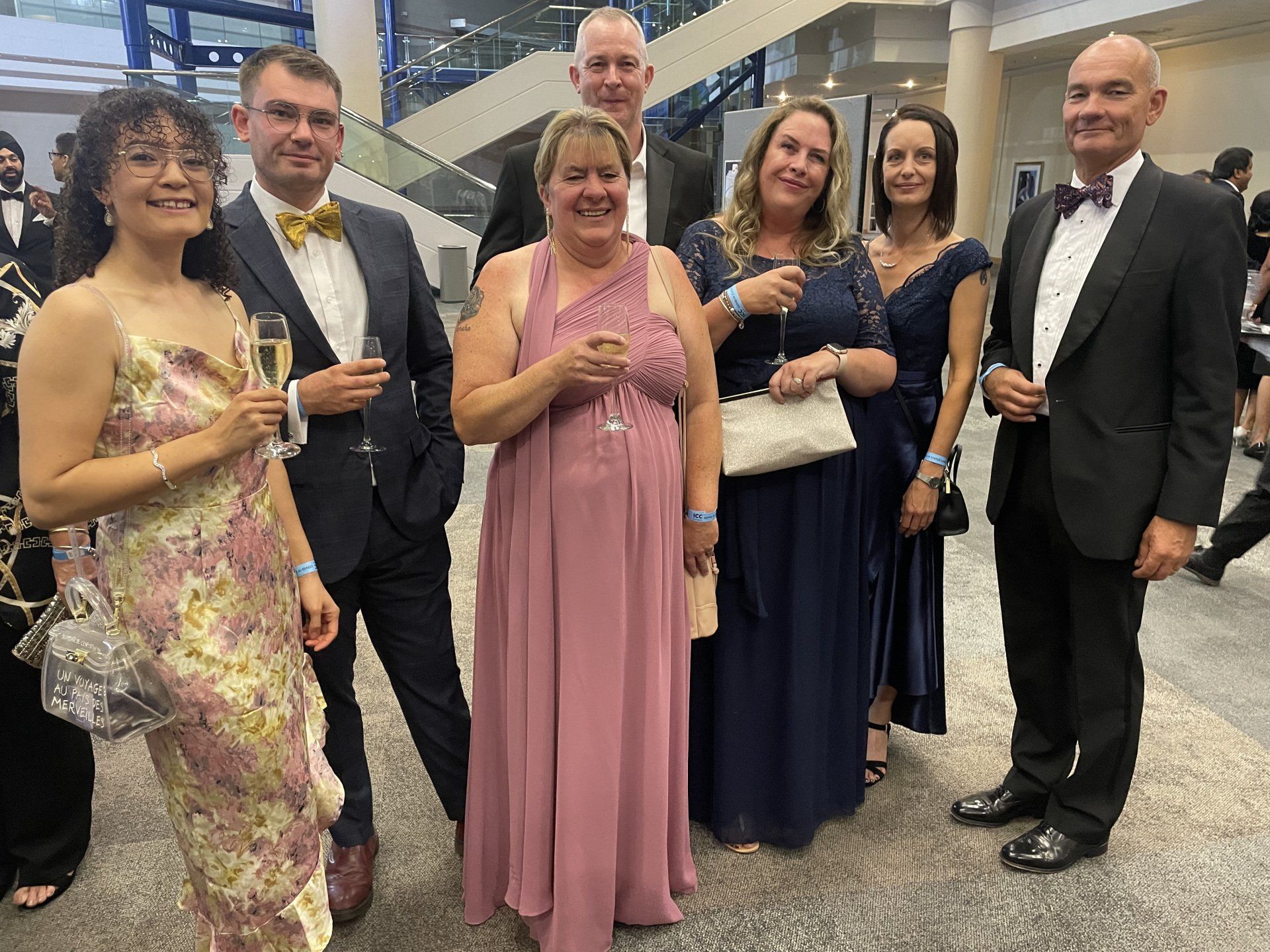
Sarah Dagger from Crossley House in Winterbourne, Karin Brownlie who manages Crossley House and Frenchay House in Frenchay Village and their colleagues who make up the Care Team at Rosewood House in Henleaze all celebrated success at the regional finals of The Great British Care Awards at Ashton Gate in July. Their dedication in supporting their residents, many of whom live with dementia, was recognised when they received glittering trophies for their devotion; being named some of the best social care workers in the whole of the South West. The team went on to the National Finals in September where over 1,000 of the most respected social care workers gathered to celebrated at a gala event in Birmingham.
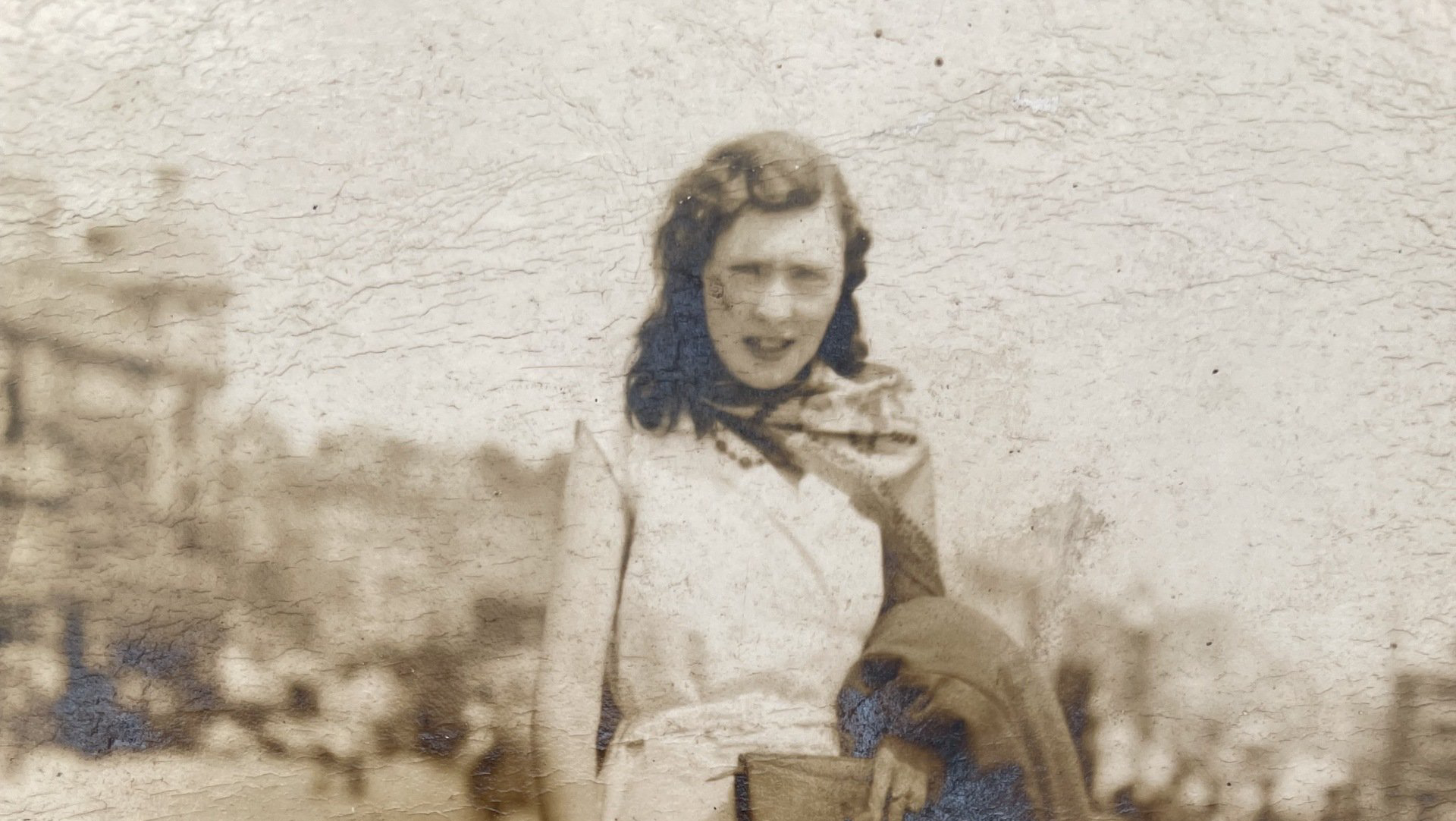
Although the face of residential care has changed dramatically over the last four decades, the values and principles of the family have remained at the foremost in working with the great staff teams they employ. Sam says ‘We have modernised with the times and now offer care for older people with higher levels of need; there is a much greater demand for dementia care too. We have maintained our ability to provide this care in beautiful, homely settings where individual needs, choices and preferences are our first priority.’

With live music performances interrupted by the pandemic, Live Music Now musicians pitched up in the gardens of care homes to continue involving residents with live music. As a result of the Musical Care Homes project, funded by Quartet Community Foundation, residents enjoyed singing (within Covid-safe guidelines), moving to music and using percussion instruments. This creative solution enabled Live Music Now to host three concert tours comprising a total of 18 performances for all residents and staff of six AbleCare care homes in Bristol. Musical genres ranged from jazz (by the Hopkins Oliver Duo) to folk (Bowreed) and classical (performed by Taff Duo). The importance of this work cannot be overstated. Even pre-pandemic, those in care homes often encountered loneliness and isolation. Taking part in music is so beneficial to those living with dementia, as it improves communication, memory, enjoyment of life and creative thinking. In fact, all homes reported increased engagement during the musical performance, with participants being interested, chatty, enthusiastic and appreciative.
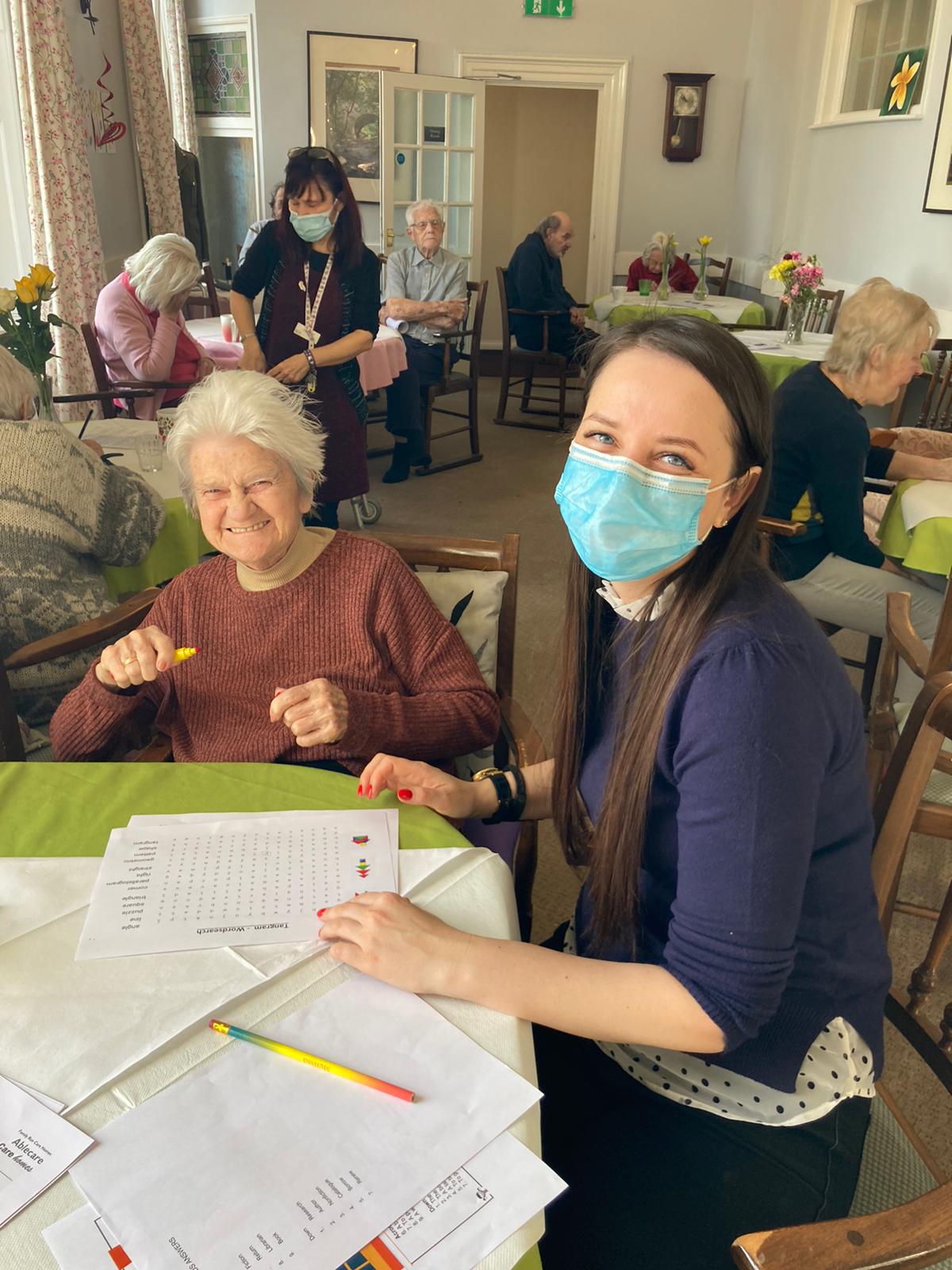
Ranging in size from 12 to 30 rooms per home, we offer boutique care homes with a charming, family, ‘home from home’ feel. All staff and residents get to know each other extremely well, our teams learn all about each individual they care for. We think small is more personalised; and in these times it is a safer way to deliver vital care services. Some of the most important features enriching the lives of our residents are good care, great food, interesting activities and comfortable facilities, all provided by kind and compassionate Carers. You can’t ever replace face to face care with technology however we have introduced our residents to a new type of tablet - installing full WiFi solutions, digital care planning programmes and obtaining iPads for the staff and residents to use. This has been very successful, with residents chatting to their families and taking part in fun games and reminiscence. Online surveys have been shared, gathering views of friends and family members at a time of huge change and gaining feedback on resident and staff wellbeing. Our social media has evolved into a support group, which we use on a daily basis to keep family networks involved in life in our homes, generating lots of comments, positive feedback and interaction. Staff wellbeing is extremely important; for us, providing crucial care services, it’s crucial to be a top-rated employer, where the best Carers enjoy working. The effect of Covid-19 on employment has brought a whole host of fantastic new recruits in with skills ranging from customer service to chefs. Our ‘Employee of the Week Award’ rewards a team member from each of our homes every week recognising the service they provide. Sharing staff profiles on social media has been pivotal in supporting teams with their wellbeing and good mental health, as an added benefit enabling families to learn more about them. AbleCare Homes has undergone a payroll re-structure gaining accreditation as a Real Living Wage Employer, something seldom achieved in our sector. We are proud to support a professional workforce. Kitchens are run by an experienced team who present a range of choices to meet preferences and dietary needs. Chefs talk to residents on a one-to-one basis; explaining what is available each day, making sure everyone is happy and discussing alternatives. Recruiting a Doctor on a short-term contract helped us to respond to some of the new challenges around testing and vaccination, supporting our Managers to set up new ways of working and providing information and guidance to ensure Covid-19 practices are thorough and robust. Despite the ups and downs of the last year and the many challenges we have faced, we are undoubtedly feeling extremely positive for the future. Safely welcoming visitors and enabling an Essential Care Giver to work with us caring for their loved one is the latest hugely positive step forward. As the sun starts to shine and we all start to get some natural vitamin D rather than the government issued drops, we have a positive outlook for this year ahead! Sam Hawker Managing Director AbleCare Homes
